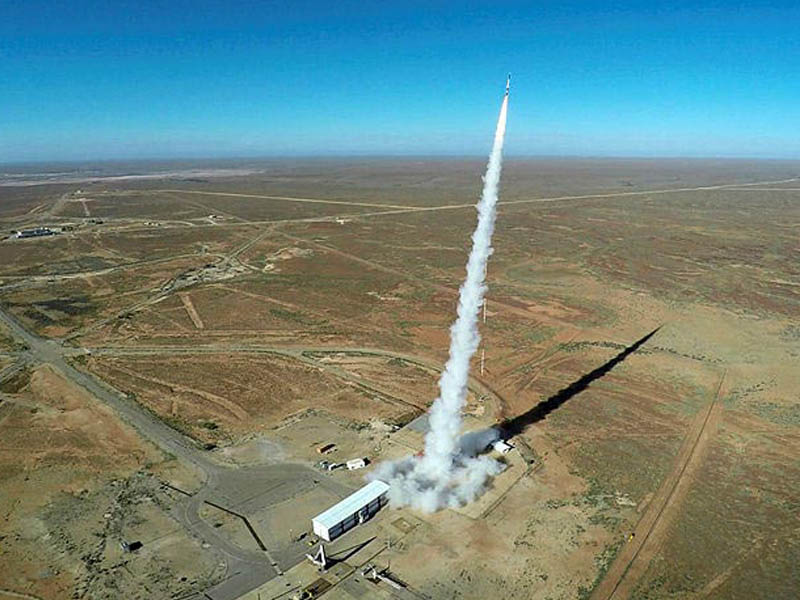Competition between states to host the proposed Australian space agency is heating up, with a number of governments already putting their cases forward to the Commonwealth for consideration.
The South Australian and ACT governments, along with political representatives from Western Australia, have already completed submissions to the federal government’s space inquiry, each arguing for the proposed space agency to build a big presence in their respective capitals.
There has been a growing push for Australia to establish its own national space agency across this year, with proponents arguing it would bring together the burgeoning but fractured local industry, creating jobs and revenue.

The federal government announced another review of the space sector in July, which won’t be reporting back until March next year. The review was pilloried by the local sector and federal opposition, which labelled it “redundant” and “too little too late”.
In its submission to the inquiry, seen by InnovationAus.com, the South Australian government labelled the country’s lack of action on a space agency as “embarrassing” with Adelaide soon to be playing host to a major international space conference.
“A 33-year period of inaction has left Australia as the only OECD nation in the world without a national space agency. To be in this position while hosting the 68th International Astronautical Congress 2017 is embarrassing in front of an industry now worth $420 billion globally,” the SA government submission said.
South Australia has signed a Memorandum of Understanding with the ACT government on the issue, with the two governments pushing for a space agency headquartered in Canberra but with a large operational base in Adelaide.
“The space sector has enormous growth potential and is a perfect fit for South Australia, given our national leadership on other high-tech industries including defence, renewable energy, IT and advanced manufacturing,” South Australian Premier Jay Weatherill said.
“Just like those industries, the space sector will provide opportunities for traditional manufacturers to transition to a high-tech, high-growth sector, he said.
The SA government’s submission said such an agency would act as a space industry ecosystem coordinator, a government investment advisor, and a capability builder that would “lead national space policy and implementation, coordinate government and industry activities and provide grants to startups and large companies who wish to join the Australian market”.
Western Australia has also put forward its case to host the national space agency in its submission to the federal inquiry.
In a joint statement, Western Australia Liberal senator Linda Reynolds and state opposition leader Mike Nahan argued that the state already plays a significant role in the space industry, with research and technological developments.
“Much of Western Australia possesses the perfect combination of low population density, minimal electromagnetic interference and high air quality, which creates ideal conditions for radio antennae, telescopes and other sensitive electronic measuring devices necessary for both civilian and defence space projects,” Mr Nahan said.
The state will soon be co-hosting the Square Kilometre Array – the world’s most powerful telescope”, which the politicians said will “cement Western Australia as a leader in the global space industry”.
But South Australian politicians have also put their case forward for why the space agency should be based in Adelaide.
“South Australia’s space sector heritage, current capabilities and emerging next generation of space professionals make it the best place to build Australia’s credentials in a global sector worth an estimated $430 billion,” the state government’s submissions said.
All the state politicians can agree that Australia needs a space agency.
In its submission, the South Australian government calls on its federal counterpart to consult with an expert references group to create the necessary governance framework, conduct a global search for the space agency’s boss, and to recruit a small team to get it off the ground.
“There has never been a more opportune or urgent time to establish a pragmatic, lean, fit-for-purpose space agency specifically designed to act as an ecosystem coordinator, government investment adviser and capability builder to achieve Australia’s economic results in this sector,” its submission said.
“Australia’s lack of a central agency to provide coordination and industry regulation in the space market is a critical capability gap. The absence of a national strategic action plan hampers the innovation process.
“Without a strategic plan, Australia will be unable to invest in trends for the coming decade which many countries such as China and India will capitalise on.”
The calls for a space agency also have the backing of some of the biggest defence companies in the world.
In a submission to the review, British defence firm BAE Systems said such an agency would help to bring the sector together.
“Assured access to space launch and the ability to place equipment in orbit is key to the success of any upstream provider of space systems and complete space flight vehicles. We would welcome a focused and centralised Australian response to access space, either via a space agency or via a coordinated effort to source space launch access,” its submission said.
In another submission, Lockheed Martin Australia managing director of space systems Rod Drury pointed to the “significant benefits” of having a space agency.
“The first and I think the clearest benefit would be the establishment of a leadership role…focusing industry, academia and government. It would also be a way of representing with a consistent voice Australia’s position in international forums,” Mr Drury said in the submission.
Do you know more? Contact James Riley via Email.

